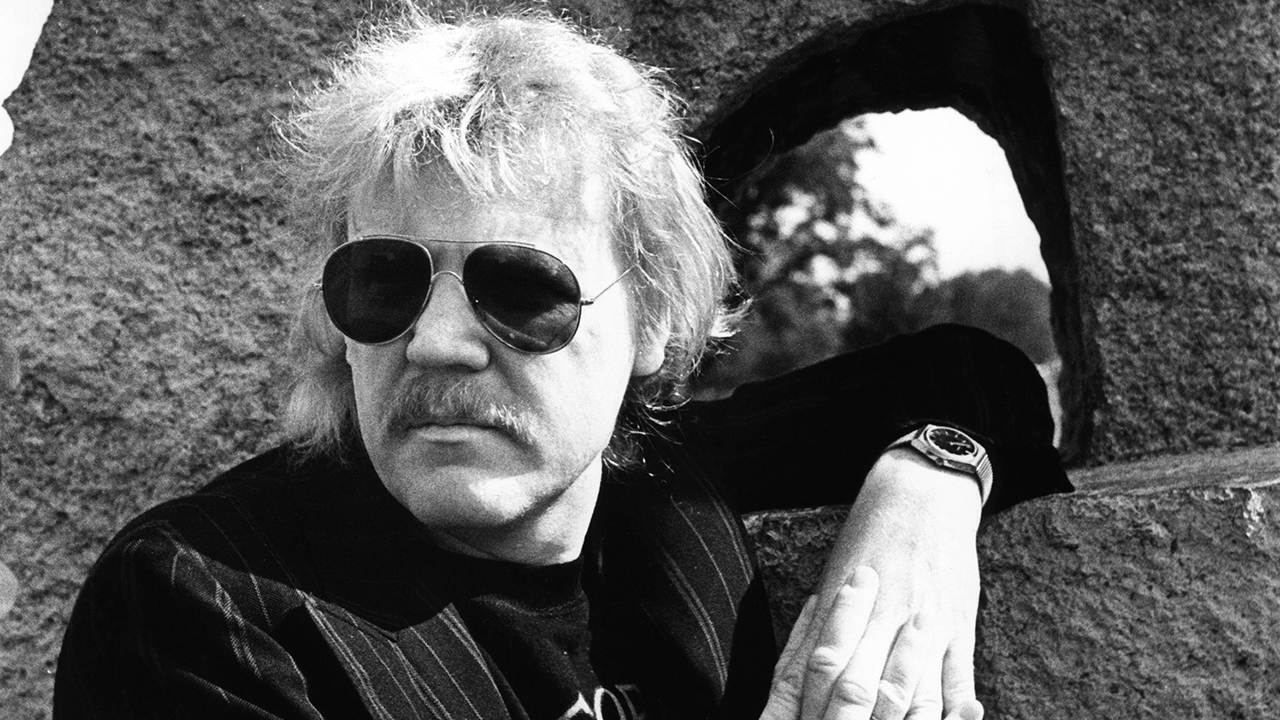The Gift: Reincarnated, reinvigorated and reinventing classic prog forms
Norse myth, consumerism and jamming with Genesis alumni – all ground out of a magical salt mill. London’s The Gift talk to Prog about their new album

There is a Norwegian folk tale with its roots in the ancient Norse poem Grottasöngr that tells how a magic mill, renowned for its ability to grind anything into existence, gets misused by a hurried ship’s captain. The skipper wishes to procure salt without crossing the seas, but in his rush to obtain his sodium bounty, neglects the operating instructions and soon finds he cannot stop it producing the white stuff. Before long, the hefty salt pile grows to such a point that it sinks his ship. The mill – the tale asserts – remains at the bottom of the sea, grinding away, making the ocean undrinkable.
The morality tale has rung true in several ways for London proggers The Gift. Their third record, Why The Sea Is Salt ruminates on the salted sea as a dual metaphor for humanity’s greed-driven polluting impact on the world and as a repository of tears shed for loss, whether it be a parent, childhood innocence or half-remembered dreams. In common with the deep, left-of-field vision of their classic prog influences, namely Pink Floyd and Genesis, The Gift have always been somewhat philosophical. Frontman Mike Morton first founded the group as a studio project to document his angry response to the Iraq war on 2006 debut Awake & Dreaming, while 2014’s Land Of Shadows introspectively pondered themes of life and death among its arching symphonic rock soundscapes. Since then the line-up has been expanded, Mike has shared writing duties and this third record represents their first full band recording.
“‘Is this an internal or external-looking album?’ I think it’s almost 50-50, really,” responds guitarist/producer David Lloyd – one of the record’s main writers – as Prog puts it to him that the previous two have looked alternately outward and inward. “At Sea, Ondine’s Song and All These Things are very outward-looking. [The latter] is about the damage an over-zealous desire for consumer things can reap on us. Then the other tracks – The Tallest Tree, Tuesday’s Child, Sweeper Of Dreams – are all internal, psychologically-driven things.”
The Tallest Tree, in particular, markedly relates to the latter theme. “That is a grief song,” Mike Morton explains. “I wrote it about the passing of my dad. It was before he was gone, actually – and written quite a long way inside how one feels.”
Created on one of many long train journeys to Edinburgh to visit his ailing father, Morton found himself trying to picture their parting. “It seems a bit morbid, really, but I was imagining saying goodbye to him when the time came, so I didn’t share it with anyone and I was then reluctant to put music to it.” Eventually compelled, he wrote “almost a folk piece – a simple, Celtic tune” in tribute to his dad’s Scottish heritage. On the record, it’s brought to life in suitably fitting fashion by guest spots from Peter Jones (on Irish whistle), plus two of Morton’s Genesis heroes: Anthony Phillips and Steve Hackett.
“The fact that they are respected, progressive guys was a thrill,” reflects the frontman. “But what was particularly touching for me was, having lost an elder gent in your life, these guys – who are both quite ‘elder’ themselves – for them to step-in felt very supportive.” For a life-long fan – one whom, until recently, fronted tribute act Book Of Genesis – the endorsement was not just meaningful, but a chance to witness two prog pioneers in action. “Ant kept asking me if it was OK,” recalls Morton, with some bemusement. “He wasn’t sure his take was good enough. He could hear all the buzzes on his guitar. The other thing was that it was very funny. He kept corpsing and making jokes and I just learned that there’s no ego in the studio.”
“I think the principal thing that I learned from the experience was the rapidity of how they were able to provide what was required,” adds Lloyd. “There was so much humour involved that it was a rather more protracted experience, but as far as the technical side was concerned, it was done very quickly.”
Sign up below to get the latest from Prog, plus exclusive special offers, direct to your inbox!
This kind of creative economy is greatly admired by the band’s guitarist. Lloyd joined The Gift in 2014, having produced Land Of Shadows and has been praised by Morton for “clearing out a lot of my excesses”. That said, this is the man bringing the album’s centre-piece All These Things – a six-part, 20-minute epic in the vein of Supper’s Ready or Thick As A Brick – to the table. How do the band justify that sort of excess?
“I hope that we haven’t created something that outstays its welcome,” says Lloyd. “But the nature of the concepts [ie consumerism and survival] invite a piece of that length and complexity, so I hope that we’ve done the job as economically as possible, but the journey is a long one: you couldn’t compress that into a two and a half-minute single.”
“We don’t want to be extending songs simply because ‘that’s what prog does’. I think that’s really stupid,” says Morton, picking up the baton. “But David doesn’t do excess: he does taste, so while he may have contributed the longest song on the album, I see it as six separate songs – and therefore not excessive!”
David describes the album as ‘bolder and more pragmatic’ and there is certainly now a focus in both form and function to The Gift that perhaps hasn’t always been present. This time, though, it feels like the right time. The band have the backing of a label they trust in Bad Elephant, a formidable, dedicated line-up, including recently-returned founding guitarist Leroy James and their best album yet: focus pervades. Is it now or never?
“Yeah, we know we’re old!” bawls Morton, perceiving the sledgehammer subtlety of the question. “It’s obviously not now or never, but it’s fair to say that up until now we’ve been a fairly well-kept secret – the joke obviously being that we didn’t want to be kept a secret!”
“My view is that we’ve expanded what is possible with this record,” concludes David. “We would be negligent if we didn’t take that energy and use it to push the band to greater accomplishments.”
They might lack the magic mill, but The Gift finally have the resources to grind their most exacting ideas into existence.
Why The Sea Is Salt is out now on Bad Elephant. See www.facebook.com/TheGiftMusicUk for more information.
